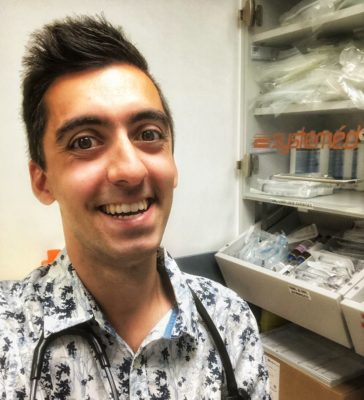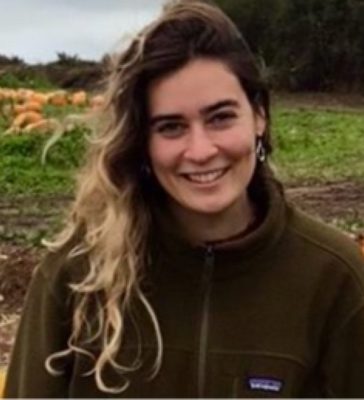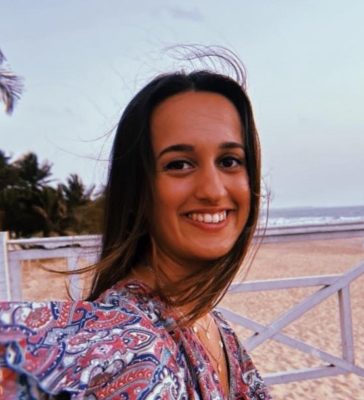
Luke Tester
Current Employer/Organisation Name
NHS
What have you been doing since leaving Exeter, and what are you doing now?
I’ve been working as a doctor within the NHS. I’ve had four-monthly rotations and have worked in acute medicine, gastroenterology, geriatrics and general practice. These roles have included running ward rounds, being on-call for a hospital out-of-hours (approximately 250 patients for 2-3 doctors), ordering investigations and interpreting their results, responding to medical emergencies, and currently running GP clinics and seeing patients with a vast range of presentations – from tropical diseases to new diagnoses of cancer to minor illnesses and the worried well. I’ve also seized numerous other opportunities, and have become a Trustee for a medium-sized social wellbeing charity that runs a befriending service, a social prescribing service, and a volunteering scheme. I led a medical student education programme (‘Foundation Teaching for Finals’) which taught final year medical students from Brighton & Sussex Medical School twice a week to prepare them for their final exams; I was a one-on-one mentor for academically struggling students from Kings College London; I am faculty for a state-of-the-art simulation suite for medical students, nursing students and student physician associates; I have taught volunteers from around Sussex first aid so that they can serve their communities, and more in the healthcare education sector. I have been part of a national St John Ambulance steering group responsible for the delivery of a £525,625 grant to provide 1,500 more spaces in the 35% most deprived areas for young people to become badgers and cadets and receive first aid training and other life skills. I’ve now joined a national prescribing working group for St John Ambulance. I have advocated for first aid, health, volunteering, community and young people at national conferences. I live with my girlfriend in Worthing.
Why did you choose this career? And what do you enjoy most about your work?
Whilst at school I wasn’t sure what I wanted to do. During my year 10 work experience I considered law and worked in a magistrates court; I considered business and worked in the City of London; and I considered medicine and worked in a hospital’s colorectal department – and became hooked. I fell in love with the complexities of the human body and how I can directly work with people to improve their lives. I love the ever-changing, ever-evolving nature of healthcare and that front-line staff can drive improvement and innovation. I enjoy working in teams to directly solve a problem, a diagnostic challenge or a treatment complexity. The detective work involved is enjoyable and satisfying, particularly with acute and emergency medicine where you can work to fix a problem and get instant results. Of course, not all problems are fixable, and communication is a big part of the role which presents its own satisfactions and challenges. Delivering end-of-life care and supporting both families and individuals through their physical, emotional and spiritual needs is very rewarding.
Please tell us if you were a member of any societies, groups or sports clubs?
Exeter University First Aid Society (EUFAS). Exeter University Sailing Club (EUSC).
Were you part of the Exeter Student Ambassador Scheme at any point during your studies?
Yes.
What did you enjoy most about your programme and what was the biggest highlight?
I loved the significant amount of clinical contact that the UEMS medicine course included from the very first week, which allowed me to develop as not just a scientist but as a clinician and professional.
What did you enjoy most about studying here?
The fantastic people – both on the course and teaching it. The staff were always supportive, approachable and knowledgeable. The location is beautiful, and the lecturers are some of the best in the world. The small group work, logical course structure and constant feedback all made it easy to learn.
Why did you choose to study at Exeter?
University of Exeter Medical School was brand new and built on the experience of every other UK system, learning and adapting to provide the best course it could. It recruited the best staff from other universities, is in a beautiful part of the world, and used a modern, integrated, cyclical learning structure.
What skills and experiences have been most useful for your career?
Seize every opportunity you can, and never stop trying to develop yourself. You’re not just learning for you – you’re learning for your patients.
What advice would you give to a current student who wishes to pursue your career?
Medicine is a significant commitment. You will have to work unsocial shifts, be in training for at least 10 years (and possibly 20+ years), and and face sights and experiences on a regular basis that you hope others will never witness. However, it comes with great satisfaction and challenge, and working in medicine is a hard-earned privilege. Ensure you have done your research and make sure that the job is right for you, and that you are willing to make may be a life-long commitment.
What are your plans for the future?
Next year I hope to work as an Educational Fellow in the Royal Sussex County Hospital’s Emergency Department. This involves working clinically in the major trauma centre’s high-intensity ED two-thirds of the time, and completing a PGCE for one-third of the time. This will allow me to experience emergency medicine and decide whether I want to pursue it as a career, as well as giving me the tools to become a better clinical educator.

